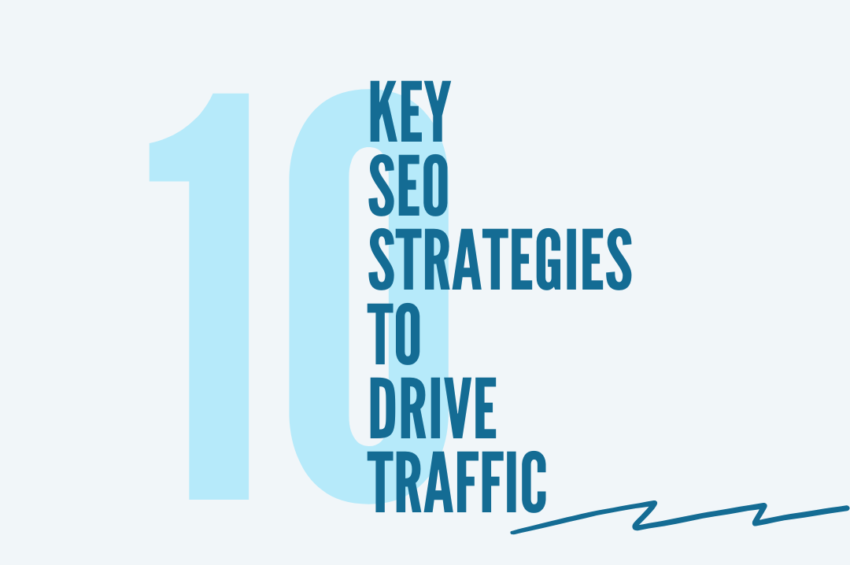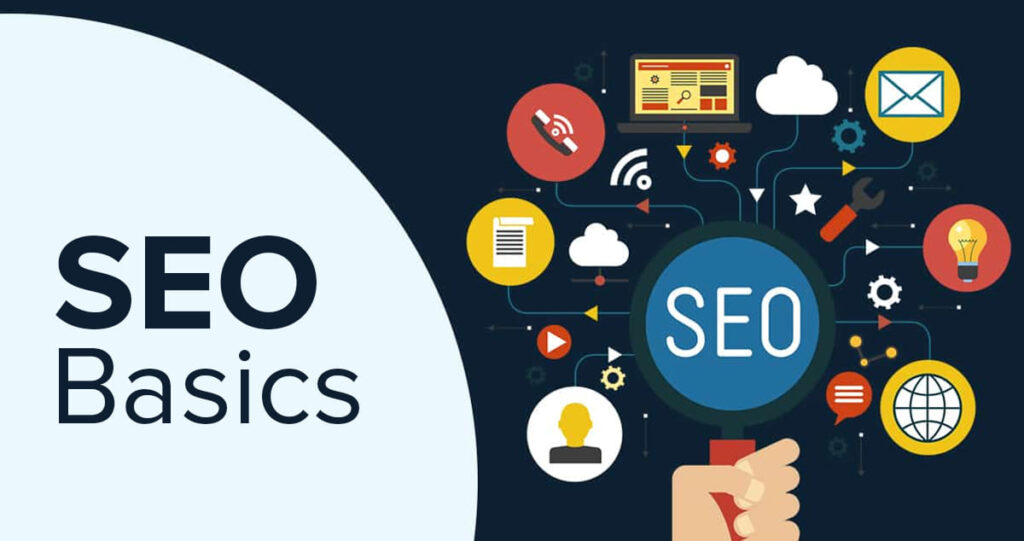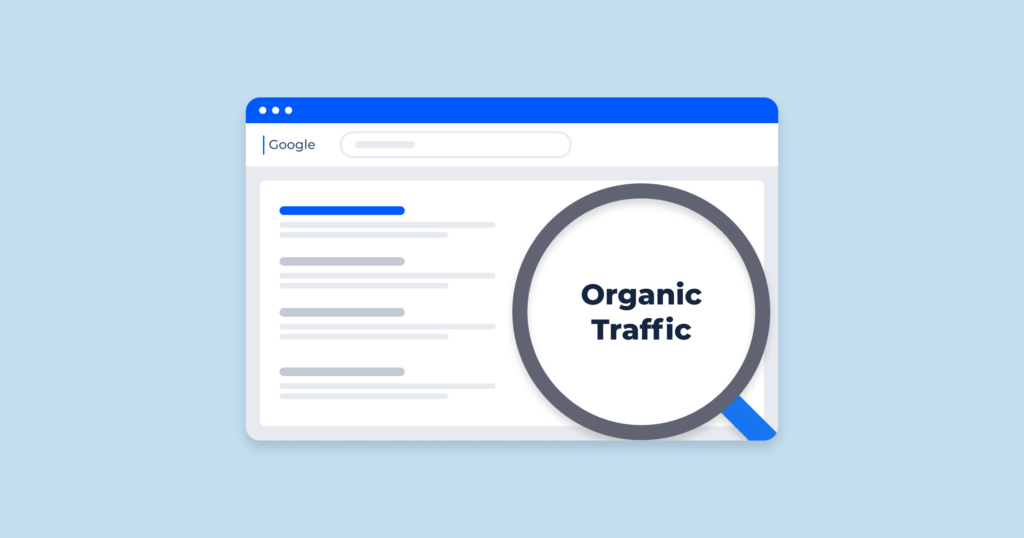
1. Understanding the Basics of SEO
2. Keyword Research and Optimization
4. Building High-Quality Backlinks
5. Content Creation and Optimization
6. User Experience and Website Performance
8. Monitoring and Analyzing SEO Performance
Having a well-optimized website is crucial for driving traffic and gaining visibility in search engine results. Search Engine Optimization (SEO) plays a pivotal role in improving your website’s ranking, increasing organic traffic, and reaching your target audience effectively. To help you navigate the ever-changing SEO landscape, this article will explore key strategies and techniques to boost your website’s visibility and drive quality traffic. From understanding the basics of SEO and SEO Strategies to implementing on-page optimization, building high-quality backlinks, creating compelling content, and analyzing your SEO performance, we will cover a wide range of actionable tactics to enhance your website’s search engine visibility and attract more visitors.
1. Understanding the Basics of SEO

1.1 Why SEO is important for driving website traffic
You know that feeling when you throw a party and nobody shows up? Well, that’s what can happen to your website if you don’t pay attention to SEO (Search Engine Optimization). SEO is the magic ingredient that helps your website stand out in the vast sea of the internet and attracts those precious visitors. It’s like having a neon sign that says, “Hey, look at me!” without having to resort to neon lights.
1.2 How search engines work and rank websites
Ever wondered how search engines decide which websites are worth showing on their first page? It’s like being picked for the cool kids’ table in the cafeteria. Search engines have these mysterious algorithms that crawl through websites, analyzing everything from content to the number of people who have actually clicked on your website (the popular kids usually get noticed more). They use this data to determine the ranking of websites, with the aim of providing the most relevant and helpful results to the user.
1.3 The role of keywords in SEO
Keywords are the secret agents in the world of SEO. They act as signposts, guiding both search engines and users to your website. Imagine you have a bakery, and your specialty is donuts. If someone types “best donuts in town” into a search engine, you want your website to pop up. So, you sprinkle a bit of SEO magic by using specific keywords related to donuts throughout your website. Voila! You’ve just given search engines a tasty treat.
2. Keyword Research and Optimization

2.1 Conducting effective keyword research
Want to know what makes your potential visitors tick? Keyword research is like eavesdropping on their conversations. It helps you understand the exact words and phrases they use to search for things on the internet. Armed with this knowledge, you can strategically sprinkle these keywords throughout your website to attract those hungry visitors. It’s like speaking their language, but without the need for a translator.
2.2 Keyword optimization in website content
Once you’ve gathered your arsenal of delicious keywords, it’s time to strategically place them in your website content. But remember, it’s all about balance. You want your keywords to flow naturally, like a well-rehearsed dance routine. Nobody likes it when they stumble upon a website that reads like a robot programmed it. So, find that sweet spot where your keywords enhance your content without making it sound like someone chewed up a thesaurus and spat it out.
2.3 Utilizing long-tail keywords for better targeting
Now, let’s talk about long-tail keywords. They may not be as flashy as short keywords, but they do the job just as well (if not better). Long-tail keywords are like a secret handshake between you and your target audience. They are longer, more specific phrases that people use when they know exactly what they’re looking for. By incorporating these long-tail keywords into your website, you’re not only attracting visitors but also attracting the right visitors. It’s like finding the perfect match on a dating app.
3. On-Page SEO Techniques

3.1 Optimizing meta tags and descriptions
Meta tags and descriptions are like the first impression you make on a blind date. They might not seem like a big deal, but they can make or break someone’s decision to click on your website. Properly optimizing these elements with relevant keywords and captivating descriptions can entice people to give your website a chance and click through. Remember, making a good first impression is key, even in the digital world.
3.2 Proper URL structure and optimization
URLs are like the addresses of your web pages. Just like a messy house can turn people away, a messy URL can confuse search engines and visitors alike. Keep your URLs tidy and optimized by using relevant keywords and keeping them short and sweet. It’s like having a clean and organized home that welcomes visitors with open arms (and a warm batch of freshly baked cookies).
3.3 Optimizing heading tags and using relevant headers
Heading tags and headers are like the chapters in a book. They give structure to your content and help search engines understand what your website is all about. By using relevant keywords in your headings, you’re giving search engines a little sneak peek into what each section is about. It’s like reading the table of contents and knowing exactly what you’ll find in each chapter. Trust us, search engines appreciate this level of organization.
4. Building High-Quality Backlinks

4.1 Understanding the importance of backlinks in SEO
Backlinks are like the glowing recommendations you get from influential people. They tell search engines that your website is worth paying attention to. Just like a celebrity endorsement can boost your popularity, backlinks from reputable websites can boost your website’s credibility and authority. They’re like gold stars on your report card, but for grown-ups.
4.2 Strategies for acquiring high-quality backlinks
So, how do you go about getting those coveted backlinks? Well, it’s all about building relationships, just like in real life. Reach out to other website owners and offer them something of value in exchange for a backlink. It could be a guest blog post, a collaboration, or even a virtual high-five. The key is to be genuine and build connections that will stand the test of time. After all, nobody likes a one-night stand, even in the digital world.
4.3 Link-building best practices and ethical considerations
When it comes to link-building, it’s important to play fair and square. Search engines are like strict referees, and they don’t appreciate cheating. Avoid shady practices like buying or spamming for backlinks. Instead, focus on creating valuable, shareable content that naturally attracts links. It’s like playing a clean game of soccer and scoring a goal the right way. The victory tastes so much sweeter when you know you played by the rules. humorous section titles to keep yourself entertained
5. Content Creation and Optimization

5.1 Creating high-quality, engaging content
When it comes to driving traffic to your website, the old saying “content is king” still holds true. But not just any content will do. It needs to be high-quality, engaging, and worth your readers’ precious time. Think about it like this: would you rather read a riveting article about the secret lives of squirrels or a snooze-inducing piece on the history of paperclips? Yeah, we thought so too.
5.2 Optimizing content with relevant keywords
Creating amazing content is one thing, but getting it in front of your target audience is a whole other ballgame. That’s where optimizing your content with relevant keywords comes into play. Think of keywords like the secret password that unlocks the door to your website. But don’t go overboard and stuff your content with so many keywords that it sounds like a robot wrote it. That’s a surefire way to turn off both search engines and humans.
5.3 Incorporating multimedia and enhancing readability
Let’s be real for a sec: reading a wall of text is about as exciting as watching paint dry. That’s why it’s important to jazz up your content with some multimedia goodness. Throw in some eye-catching images, entertaining videos, or even humorous GIFs (yes, even in a serious article like this) to keep your readers hooked. Oh, and don’t forget to make your content easily digestible by using bullet points, subheadings, and plenty of white space. After all, nobody wants to feel like they’re reading a doctoral thesis.
6. User Experience and Website Performance

6.1 Importance of user experience in SEO
Imagine visiting a website that takes forever to load, has a confusing navigation menu, and bombards you with pop-up ads. Sounds like a nightmare, right? Well, that’s exactly what a bad user experience feels like. And search engines hate it just as much as we do. So, make sure your website is user-friendly, easy to navigate, and provides a seamless experience across different devices. Because if your visitors don’t stick around, neither will search engines.
6.2 Enhancing website speed and performance
Time is a valuable commodity, especially on the internet. If your website takes ages to load, you can bet your bottom dollar that people will click that back button faster than you can say “search engine optimization.” So, optimize your website’s speed by compressing images, minifying code, and investing in a reliable hosting provider. Remember, in the race to attract and retain visitors, slow and steady definitely does not win.
6.3 Mobile optimization and responsive design
Let’s face it, we’re living in a mobile-first world. Everyone and their grandma have smartphones glued to their hands, so it’s no surprise that search engines prioritize mobile-friendly websites. Make sure your website is optimized for mobile devices and employs responsive design, so it looks just as snazzy on a tiny screen as it does on a desktop. Because if someone has to pinch and zoom to read your website, they’re more likely to pinch and zoom right out of there.
7. Local SEO Strategies

7.1 Importance of local SEO for driving targeted traffic
If your business operates in a specific location, then local SEO is your best friend. It allows you to target potential customers in your area and drive them straight to your virtual doorstep. So, whether you’re the best pizza joint in town or the top dog groomer on the block, optimizing your website for local searches will ensure you’re the first thing local customers see when they’re looking for what you offer.
7.2 Optimizing Google My Business and local directories
When it comes to local SEO, Google is the big cheese. And one of the best ways to get in Google’s good graces is by claiming and optimizing your Google My Business listing. Fill it out with accurate and up-to-date information, encourage customers to leave reviews, and show off some drool-worthy photos of your business. Oh, and don’t forget to spread the local love by getting listed in other relevant local directories too.
7.3 Leveraging customer reviews and local citations
Let’s be honest, we all love a good recommendation. And when it comes to local SEO, customer reviews and local citations are like gold dust. Encourage your satisfied customers to leave reviews on platforms like Yelp, Facebook, or TripAdvisor. Not only will it help you build trust with potential customers, but it’ll also send all the right signals to search engines that your business is the bee’s knees.
8. Monitoring and Analyzing SEO Performance

8.1 Tracking website rankings and organic traffic
As much as we wish we had psychic SEO powers, the truth is, we need to rely on data and analytics to measure our SEO performance. Keep an eye on your website’s rankings for important keywords and track changes in your organic traffic over time. That way, you’ll know if your SEO efforts are paying off or if you need to switch gears and try something new.
8.2 Analyzing website metrics and user behavior
To truly understand how your website is performing, you need to dig deeper than just rankings and traffic numbers. Dive into your website’s analytics to uncover valuable insights about user behavior. Are people spending a lot of time on certain pages? Are they bouncing off your website like rubber balls? By analyzing this data, you can make informed decisions about how to optimize your website for better user engagement and conversions.
8.3 Utilizing humorous section titles to keep yourself entertained
Let’s face it, SEO can be a bit dry and technical at times. So why not inject a little humor into the mix? After all, there’s no harm in having a chuckle while monitoring and analyzing your SEO performance. So go ahead and come up with witty and funny section titles that would make even the most serious SEO expert crack a smile. Because if you’re going to spend hours analyzing data, you might as well do it with a grin on your face.
By implementing these key SEO strategies, you can significantly improve your website’s visibility and drive targeted traffic. Remember that SEO is an ongoing process, requiring regular monitoring and adjustments to keep up with the changing algorithms and user behaviors. Stay proactive, stay updated, and continue to refine your SEO efforts to ensure long-term success. With a well-optimized website, you can attract more visitors, increase conversions, and ultimately achieve your online goals. Start implementing these strategies today and watch your website’s traffic soar.
FAQ
1. How long does it take to see results from SEO efforts?
SEO is a long-term strategy, and it can take time to see significant results. The timeline for seeing improvements in your website’s visibility and traffic can vary depending on various factors such as the competitiveness of your industry, the level of optimization on your website, and the quality of your SEO efforts. Generally, it can take several months to start seeing significant improvements, but consistent and strategic SEO practices can yield long-lasting results over time.
2. Is it necessary to hire an SEO professional, or can I do it myself?
Whether you should hire an SEO professional or handle it yourself depends on your familiarity and expertise in SEO. While it is possible to learn and implement SEO strategies yourself, keep in mind that SEO is a complex and ever-evolving field. Hiring an experienced SEO professional can provide you with expertise, industry knowledge, and save you time and effort. They can help develop a customized SEO strategy, stay updated with the latest trends, and ensure your website is optimized effectively.
3. Is keyword density still important for SEO?
Keyword density, which refers to the percentage of times a target keyword appears on a web page compared to the total number of words, used to hold more significance in the past. However, search engines have become more sophisticated and now prioritize the overall context, relevance, and user experience. While using keywords strategically is important, keyword stuffing and excessive keyword density can negatively impact your SEO efforts. Focus on creating high-quality, valuable content that naturally incorporates relevant keywords and satisfies the user’s intent.



